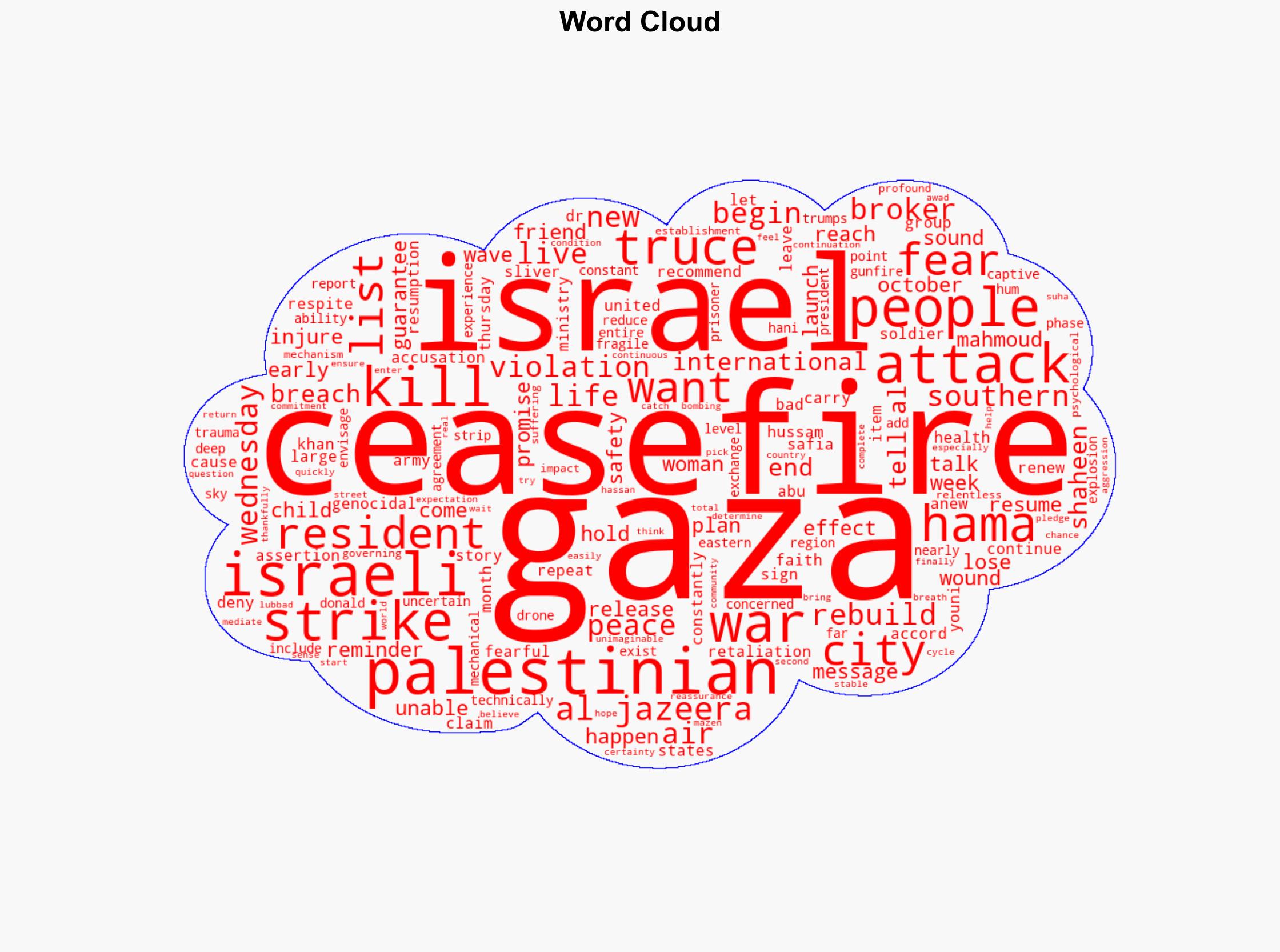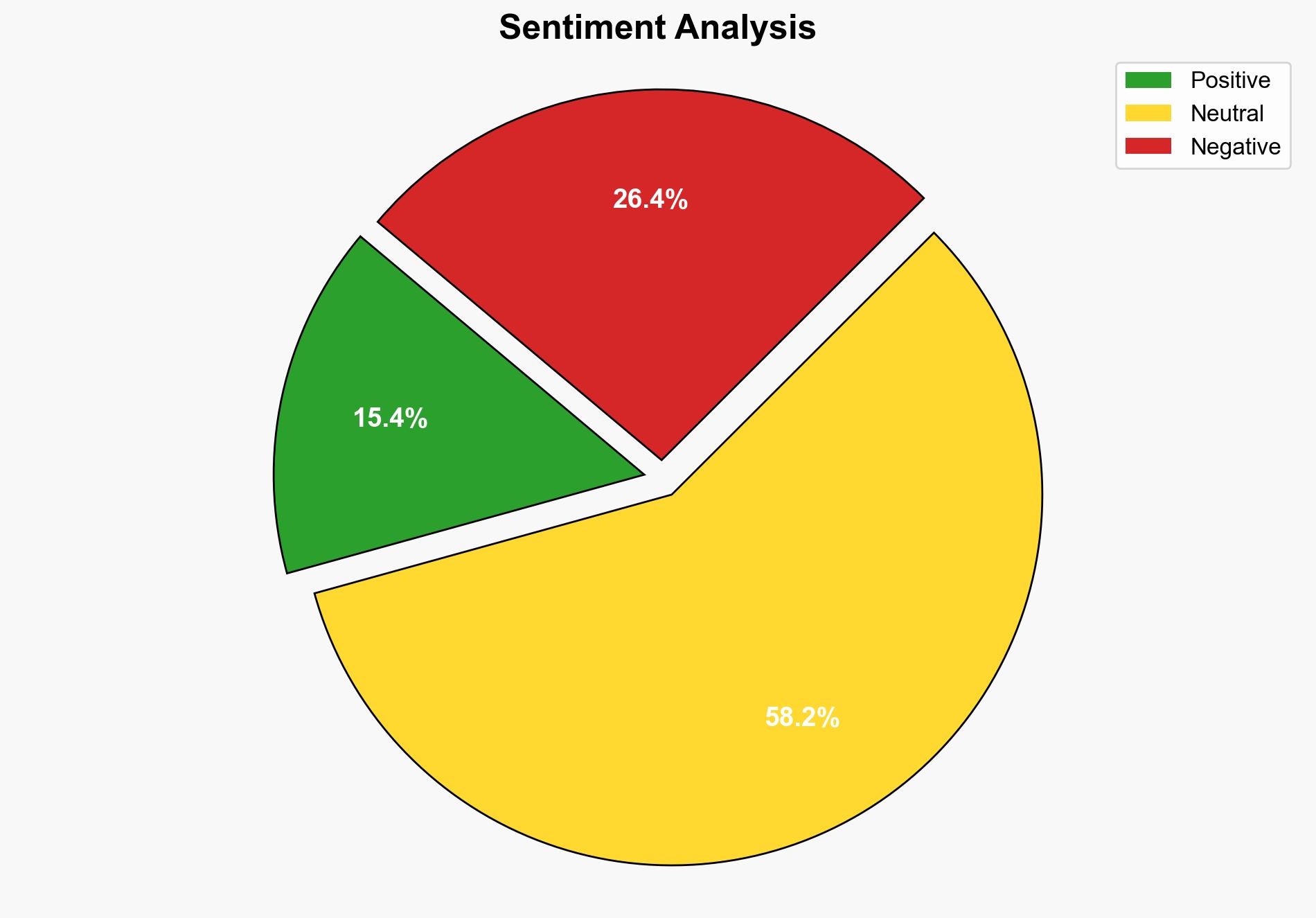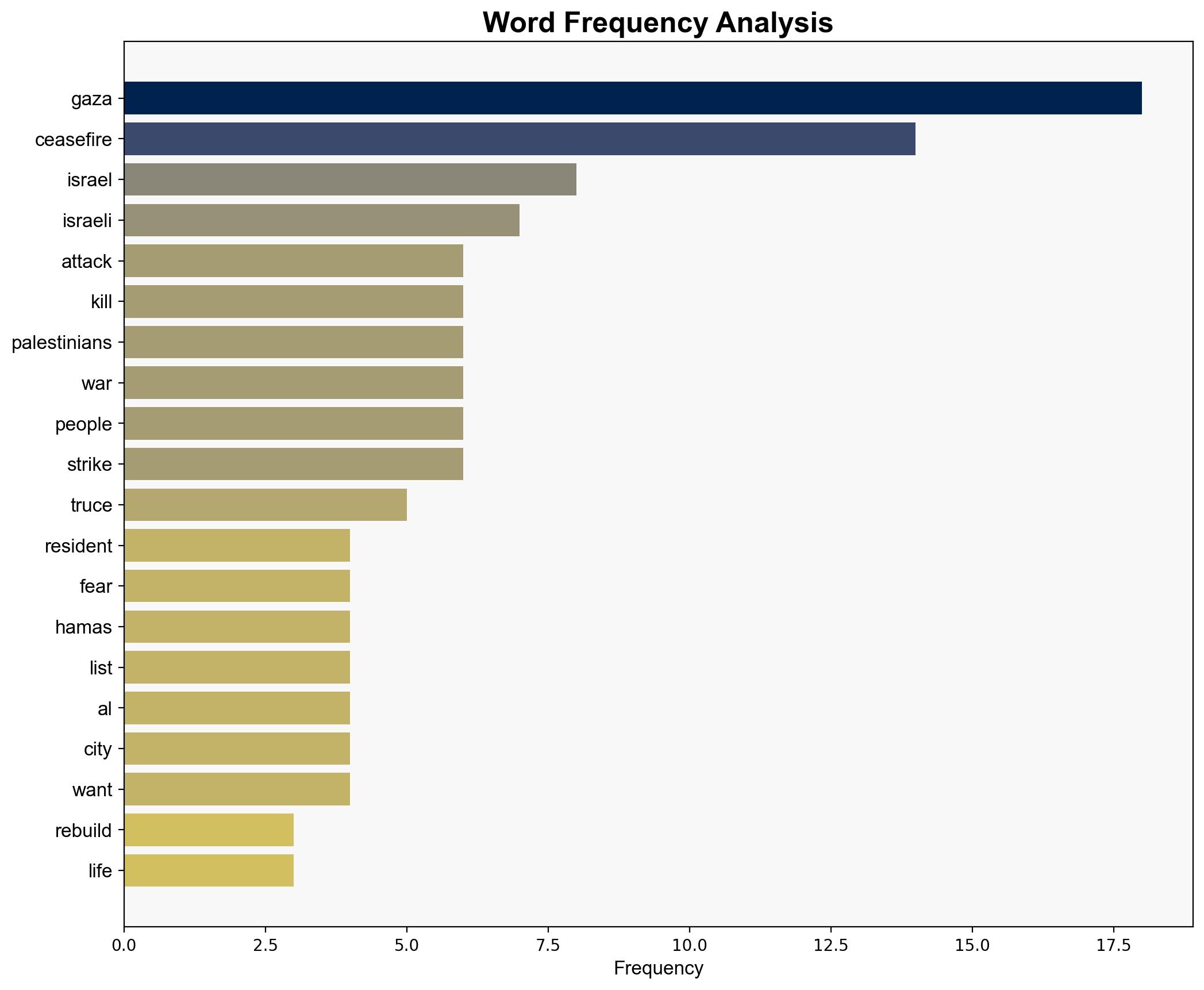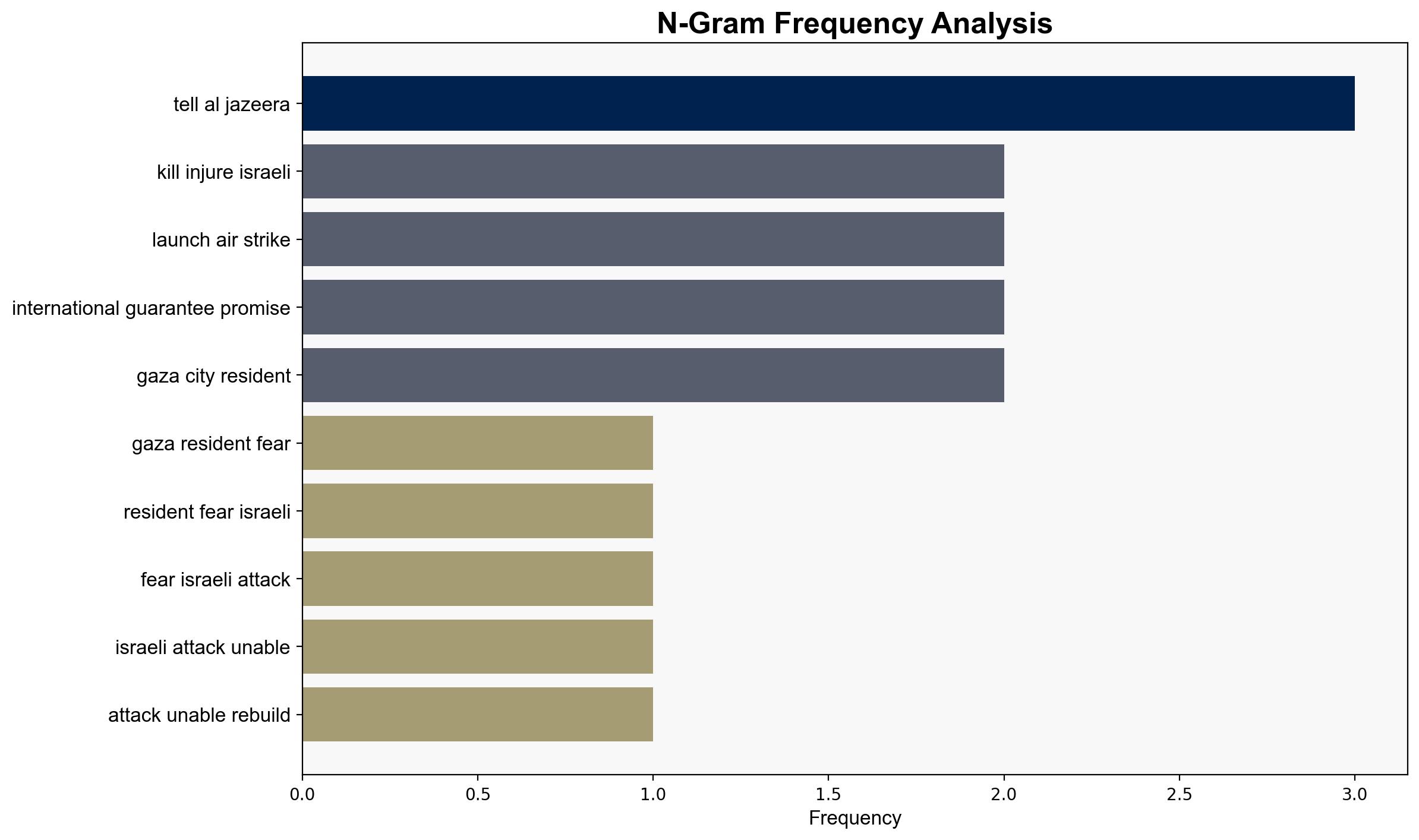Gaza residents fear more Israeli attacks unable to rebuild their lives – Al Jazeera English
Published on: 2025-10-30
Intelligence Report: Gaza residents fear more Israeli attacks unable to rebuild their lives – Al Jazeera English
1. BLUF (Bottom Line Up Front)
The most supported hypothesis is that the ceasefire between Israel and Hamas is fragile and likely to be violated again, leading to continued instability and humanitarian challenges in Gaza. Confidence level: Moderate. Recommended action: Increase diplomatic engagement to strengthen ceasefire terms and provide humanitarian aid to Gaza.
2. Competing Hypotheses
1. **Hypothesis A**: The ceasefire is inherently unstable due to mutual distrust and ongoing provocations, leading to inevitable violations and continued conflict.
2. **Hypothesis B**: The ceasefire can hold if reinforced by international guarantees and increased diplomatic efforts, potentially leading to a longer-term peace process.
Using the Analysis of Competing Hypotheses (ACH) 2.0, Hypothesis A is better supported by the evidence of ongoing airstrikes and mutual accusations of ceasefire violations. Hypothesis B lacks sufficient support due to the absence of robust international intervention and guarantees.
3. Key Assumptions and Red Flags
– **Assumptions**:
– Hypothesis A assumes that both parties are unable or unwilling to fully commit to the ceasefire.
– Hypothesis B assumes that international actors can and will effectively mediate and enforce the ceasefire.
– **Red Flags**:
– The lack of clear, enforceable terms in the ceasefire agreement.
– Potential bias in reporting, as the source is from a media outlet with specific geopolitical perspectives.
– **Blind Spots**:
– Insufficient information on the internal political dynamics within Hamas and Israel that might affect their commitment to the ceasefire.
4. Implications and Strategic Risks
– **Patterns**: Repeated ceasefire violations suggest a cycle of retaliation that could escalate into broader conflict.
– **Cascading Threats**: Continued instability in Gaza could lead to increased regional tensions, affecting neighboring countries and potentially drawing in international actors.
– **Potential Escalation Scenarios**: A significant breach of the ceasefire could lead to a full-scale military confrontation, exacerbating humanitarian crises and destabilizing the region further.
– **Psychological Impact**: Persistent fear and trauma among Gaza residents could lead to long-term societal and psychological issues, hindering peace efforts.
5. Recommendations and Outlook
- Engage with international partners to strengthen the ceasefire through diplomatic channels and enforceable guarantees.
- Provide immediate humanitarian aid to Gaza to alleviate suffering and build goodwill for peace efforts.
- Scenario Projections:
- Best Case: Strengthened ceasefire leads to a reduction in hostilities and opens dialogue for a long-term peace agreement.
- Worst Case: Ceasefire collapses, leading to a full-scale conflict with severe humanitarian and geopolitical consequences.
- Most Likely: Continued sporadic violations with intermittent periods of calm, requiring ongoing international mediation.
6. Key Individuals and Entities
– Hani Mahmoud (Al Jazeera reporter)
– Mazen Shaheen (Gaza resident)
– Hassan Lubbad (Gaza City resident)
– Suha Awad (Gaza City resident)
7. Thematic Tags
national security threats, regional focus, humanitarian crisis, conflict resolution





